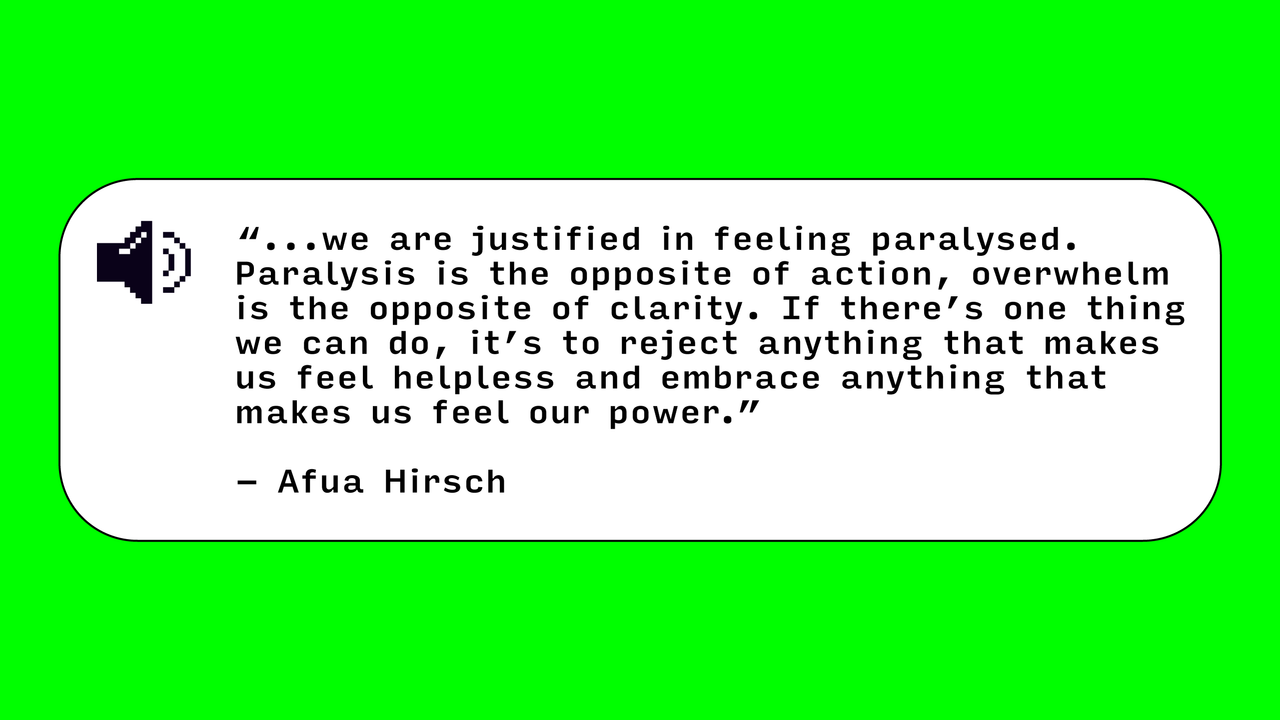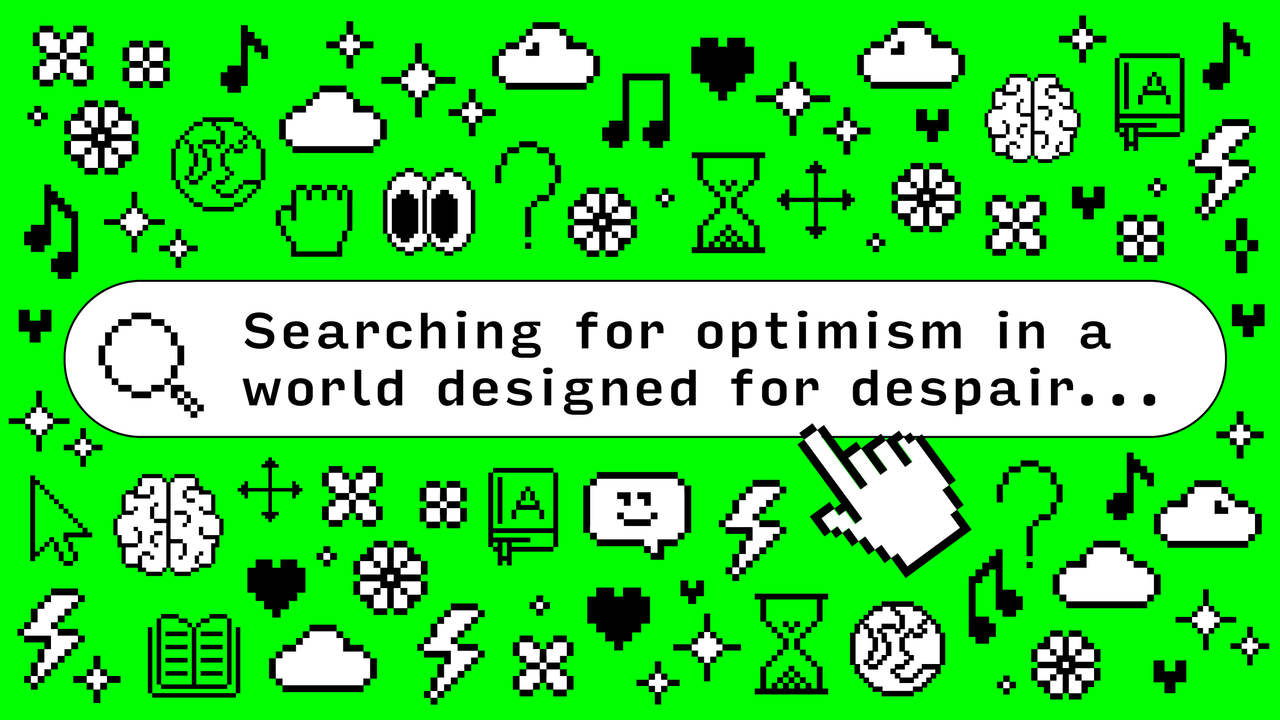“We are living in the Age of Anti-Hope.”
- Elif Shafak
When I came across this quote from author Elif Shafak in her excellent Substack newsletter, it stopped me in my tracks. Because the concept of ‘hope’ is at the heart of all of my work as a purpose-led copywriter. After all, when you boil my job down to its essence, it’s about how to use words and stories to elicit hope in audiences.
Even at the best of times, hope is a difficult emotion to access, lying buried under layer upon layer of protective shields that have been consolidated into a tough shell by hard-earned experience. And, today, those shells are feeling increasingly tougher to penetrate.
In just five words, ‘the Age of Anti-Hope’ neatly summarises something I’ve been grappling with for a long time: that humanity appears to be more devoid of hope and optimism than at any other point in modern history, especially when it comes to information we consume online.
When we think about the future, most of us can only see worse things ahead, and it feels as if taking any kind of action, or pushing for any kind of change, is ineffective and therefore pointless.
In other words, why bother?
In the face of so much struggle and brutality – a great deal of which is being inserted into our brains from the palm of our hand – why aren’t those in power taking this opportunity to blanket us in hope and optimism so we can collectively pursue brighter horizons? This is a question that writers have always grappled with. The most common conclusion seems to be that scared and exhausted populations are easier to control. The deeply paradoxical result of this is that it becomes politically advantageous to invent more problems than solve existing ones.
So how can we shift mindsets to more optimistic ones when we’re being actively encouraged to fall into a pit of fear, despair and deep despondency?

Above quote by Afua Hirsch
In the last couple of years, I’ve come to understand that – before we even think about changing the minds of others – we must ask ourselves a crucial question: ‘Do I feel hopeful?’
A couple of years ago, my answer would have been an instant ‘no’. Looking after two children at home during the covid years had floored me completely, political shifts made me feel sick about the future my kids would have to grow up in and I felt trapped in an ever-deepening pit of existential anguish. I constantly looked to external sources for reassurance that things would improve, feeling let down when governments, individuals and brands who claimed to represent ‘hope’ with their words repeatedly failed to deliver it with their actions.
But, as I began to explore my creativity more – and spend time with others who felt the same urge – I began to understand that “hope” doesn’t magic itself into existence through words alone. Instead, it spreads invisibly between people; through stories, through art, through community action, through small acts of kindness (that aren’t filmed and shared online for ‘likes’).
Hope isn’t an external entity that only exists as we look to the future; it’s an internal feeling rooted in the here and now that quietly sparks to life when we do something that makes us feel good, or connect with others who experience the same reactions as us.
The world might be broken, but we can still salvage something good
For too long, I felt guilty about feeling good in a world that has proved itself to be anything but. But the simple experience of joy is what keeps us human. And, in the absence of mass narratives and messages that are designed to instil us with optimism, it falls to us to fill that void.
Today, I do things that make me happy for the sake of joy alone. I still care deeply about the planet’s ever-deepening problems, and use my privileges to take whatever actions I can. But, increasingly, I’ve stopped ‘broadcasting’ my despair online, shifting my focus to sharing lightness in a world that is designed to keep us in the dark: work I’m proud of, weird things that interest me, stories with happy endings, songs that infuse my brain with magic.
Time and time again, the world has shown itself to be a cruel, brutal place. Fear and despair are natural, human reactions to our reality. But just because life itself is hard, it doesn’t mean we must be, too. Instead, we must accept the world is broken, and try and salvage something from it anyway. In the words of Joe Lycett: “Maybe everything is glorious and fucked at the same time.”
We can be sad and optimistic.
We can be strong and soft.
We can be nice and serious (see what I did there?).
We might be living in the age of anti-hope, but what we must remember is this: hope isn’t fluffy or weak or idealistic. Hope is gritty and stubborn and imperfect. And, the darker things become, the more it’s our duty to keep it alight.
